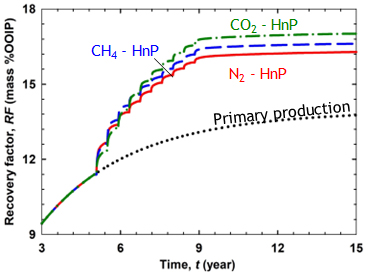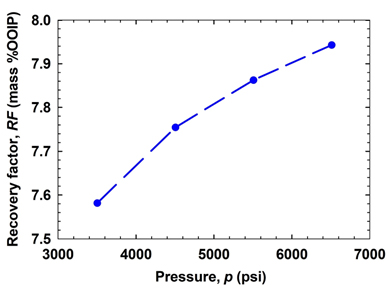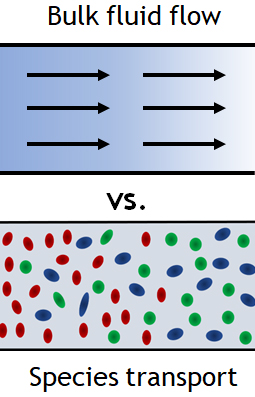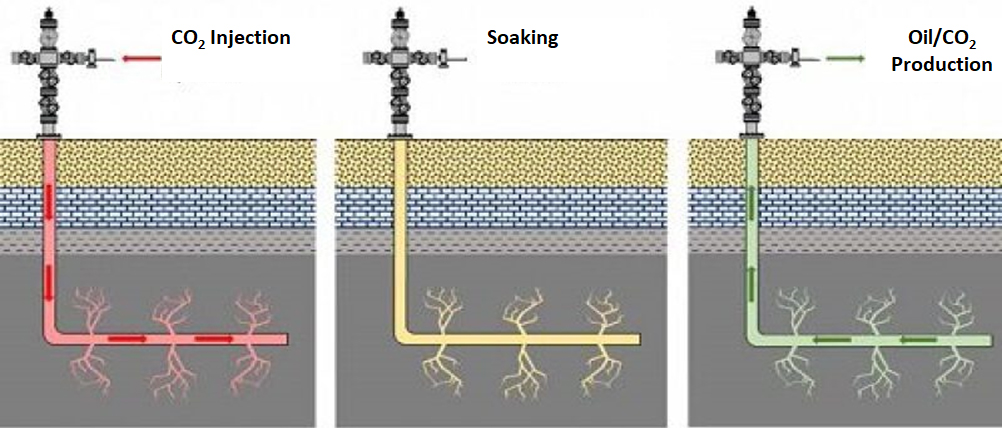The Subsurface Energy Recovery and Storage (SERS) JIP focuses on energy recovery from geological reservoirs, improved hydrocarbon recovery, and geo-storage of hydrogen and carbon dioxide (CO2). The SERS JIP includes research topics in enhanced oil recovery, hydrocarbon production from unconventional reservoirs, hydrogen and carbon dioxide geo-storage, and geothermal energy. Related research projects use analytical, experimental, and numerical methods.

Multicontact miscibility not valid: RF increases with pressure beyond MMP

Two phase condition: CO2 > CH4 > N2
Q: Who is leading this effort?
A: The JIP is co-directed by Hamid Emami-Meybodi, Russell Johns, and Shimin Liu. The effort is led by Emami-Meybodi.
Q: Where are you located?
A: The JIP is operated through the EMS Energy Institute and the John and Willie Leone Family Department of Energy and Mineral Engineering. Research labs and faculty and student offices are in Hosler Building, Coal Utilization Lab, and Academic West.
Q: How are you funded?
A: JIP members consist of industry partners—oil, gas, and energy companies—that pay annual membership fee of $75K/yr.
Q: What are your big goals?
A: The JIP goals are to:
- Generate innovative short- and long-term analytical, numerical, and experimental research in improved geo-energy efficiency and storage and closely related areas.
- Recruit and train bright students for careers in the energy industry to ensure a viable and well-trained future workforce in petroleum engineering, subsurface energy engineering, and closely related disciplines.
- Create useful and practical software “toolkits” and disseminate research results via a central web page and annual meetings.
- Design and conduct specialized laboratory analyses for related applications.
- Build long-term and sustainable research capacity on selected research topics.

Q: How do you plan to accomplish these goals?
A: An advisory board comprised of the members of the SERS JIP has been established to provide recommendations on proposal requests, educational topics, and technology research and development projects related to the mission of SERS JIP.
Q: Why is this research so important?
A: It is evident that subsurface energy resources, such as hydrocarbon reservoirs, will be needed for the foreseeable future even as the energy transition occurs. Engineering innovation will be essential to ensure these resources will be part of the solution for the energy transition.
Q: What makes this research new/different/innovative?
A: The JIP is one of the first of its kind worldwide in sustainable geo-energy production and storage with a focus on increasing energy efficiency and reducing emissions. Because some countries and companies will forego the exploration of new subsurface energy resources, this JIP will develop new technologies to maximize energy recovery from new and mature fields. The JIP also considers how to maximize CO2 storage during and potentially after hydrocarbon depletion. Hydrogen storage and geothermal energy present new challenges in subsurface engineering as well.
Q: Is there anything else you'd like to share?

A: Membering companies share the risks for conducting high-risk, high reward projects though the JIP. Through combining expertise and resources of multiple co-directors and companies, the JIP members can effectively manage and mitigate risks throughout the projects. Members have ease of access to updated versions of the most advanced toolkits available in the topic areas. Members will also have ease of access to laboratory services, such as routine and special reservoir rock characterization and testing.

